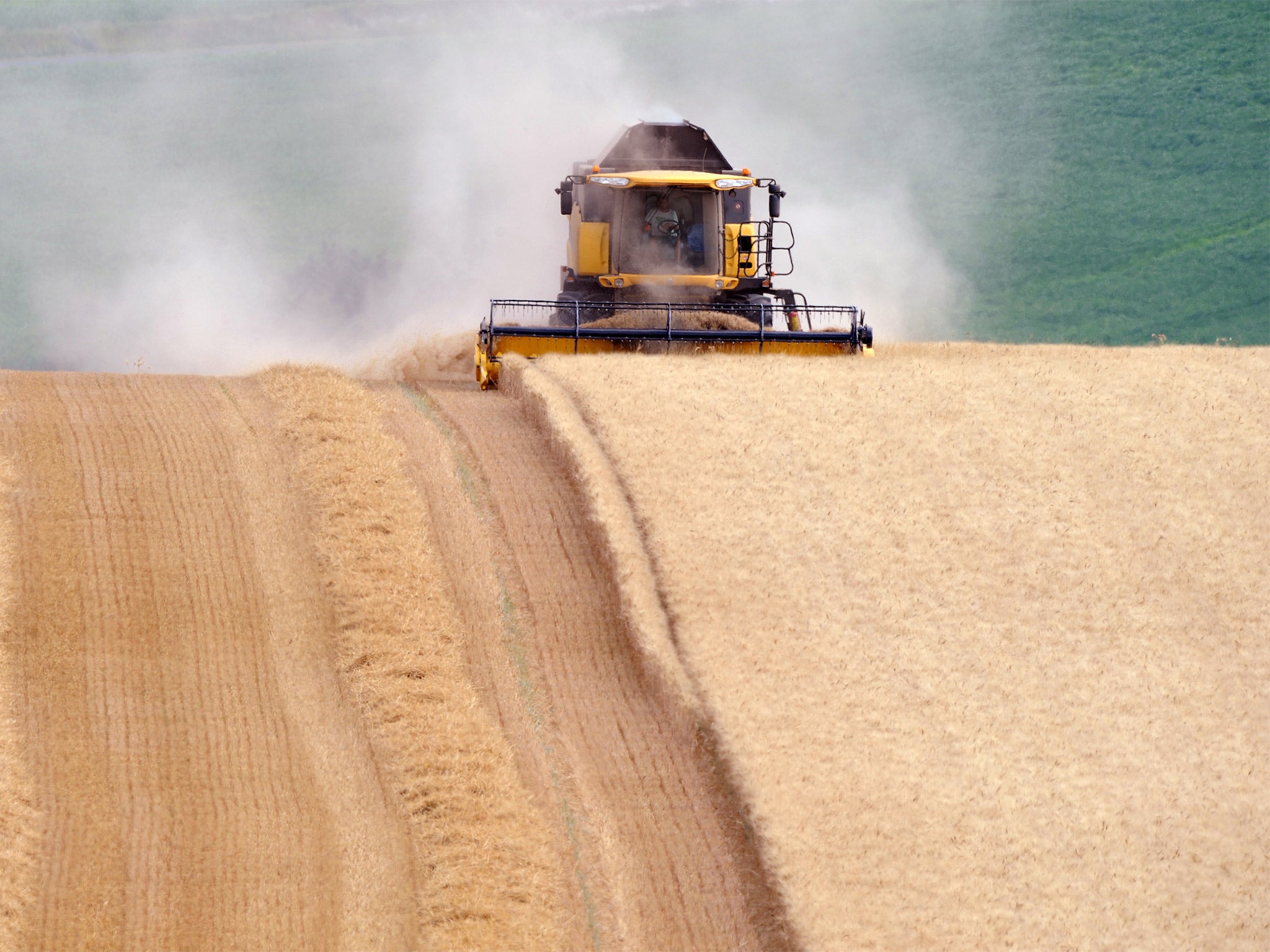Have we reached 'peak food'? Shortages loom as global production rates slow
Staples such as wheat, chicken and rice are slowing in growth – with dire consequences

The world has entered an era of “peak food” production with an array of staples from corn and rice to wheat and chicken slowing in growth – with potentially disastrous consequences for feeding the planet.
New research finds that the supply of 21 staples, such as eggs, meat, vegetables and soybeans is already beginning to run out of momentum, while the global population continues to soar.
Peak chicken was in 2006, while milk and wheat both peaked in 2004 and rice peaked way back in 1988, according to new research from Yale University, Michigan State University and the Helmholtz Centre for Environmental Research in Germany.
What makes the report particularly alarming is that so many crucial sources of food have peaked in a relatively short period of history, the researchers said.
“People often talk of substitution. If we run out of one substance we just substitute another. But if multiple resources are running out, we’ve got a problem. Mankind needs to accept that renewable raw materials are reaching their yield limits worldwide,” said Jianguo “Jack” Liu, of Michigan State University.
Food peak production
Show all 12“This is a strong reason for integration ... rather than searching for a one-for-one substitution to offset shortages,” he added.
Peak production refers to the point at which the growth in a crop, animal or other food source begins to slow down, rather than the point at which production actually declines. However, it is regarded as a key signal that the momentum is being lost and it is typically only a matter of time before production plateaus and, in some cases, begins to fall – although it is unclear how long the process could take.
“Just nine or 10 plants species feed the world. But we found there’s a peak for all these resources. Even renewable resources won’t last forever,” said Ralf Seppelt, of the Helmholtz Centre.
The research, published in the journal Ecology and Society, finds that 16 of the 21 foods examined reached peak production between 1988 and 2008.
This synchronisation of peak years is all the more worrying because it suggests the whole food system is becoming overwhelmed, making it extremely difficult to resurrect the fortunes of any one foodstuff, let alone all of them, the report suggested.
The simultaneous peaking of the world’s basic foodstuffs is largely down to the competing demands of a mushrooming population, which is putting ever-greater strain on the land for housing, agriculture, business and infrastructure. At the same time, producing more of any one staple requires the use of extra land and water, which increases their scarcity and makes it harder to increase food production in the future.
Finally, increases in production tend to push up pollution, which exacerbates shortages of resources and slows the growth in output.
The simultaneous peaking of crops and livestock comes against a backdrop of a growing population, which is expected to reach nine billion by 2050, requiring the world to produce twice as much food by then as it does now, according to a separate study by the California Academy of Sciences. The problems caused by the growing population have been compounded by the growth of wealthy middle-class populations in countries such as China and India which are demanding a meatier diet. This is problematic because meat and dairy use up a lot more resources than if a comparable level of nutrition were provided by crops, grown direct for human consumption.
“That trajectory [of needing to double food production] is not a given but more of a warning. It means we have to change how we eat and use food,” said Jonathan Foley, the director of the California Academy of Sciences.
While the peak production study suggests a doubling of food output could well be impossible, Dr Foley points out that, since 30 to 40 per cent of the food grown globally for human consumption never gets eaten, eliminating waste would go a long way to feeding the growing population.
Among the basic foodstuffs examined, only the relatively undeveloped farmed fish – or aquaculture – industry has yet to reach peak production.
Subscribe to Independent Premium to bookmark this article
Want to bookmark your favourite articles and stories to read or reference later? Start your Independent Premium subscription today.

Join our commenting forum
Join thought-provoking conversations, follow other Independent readers and see their replies